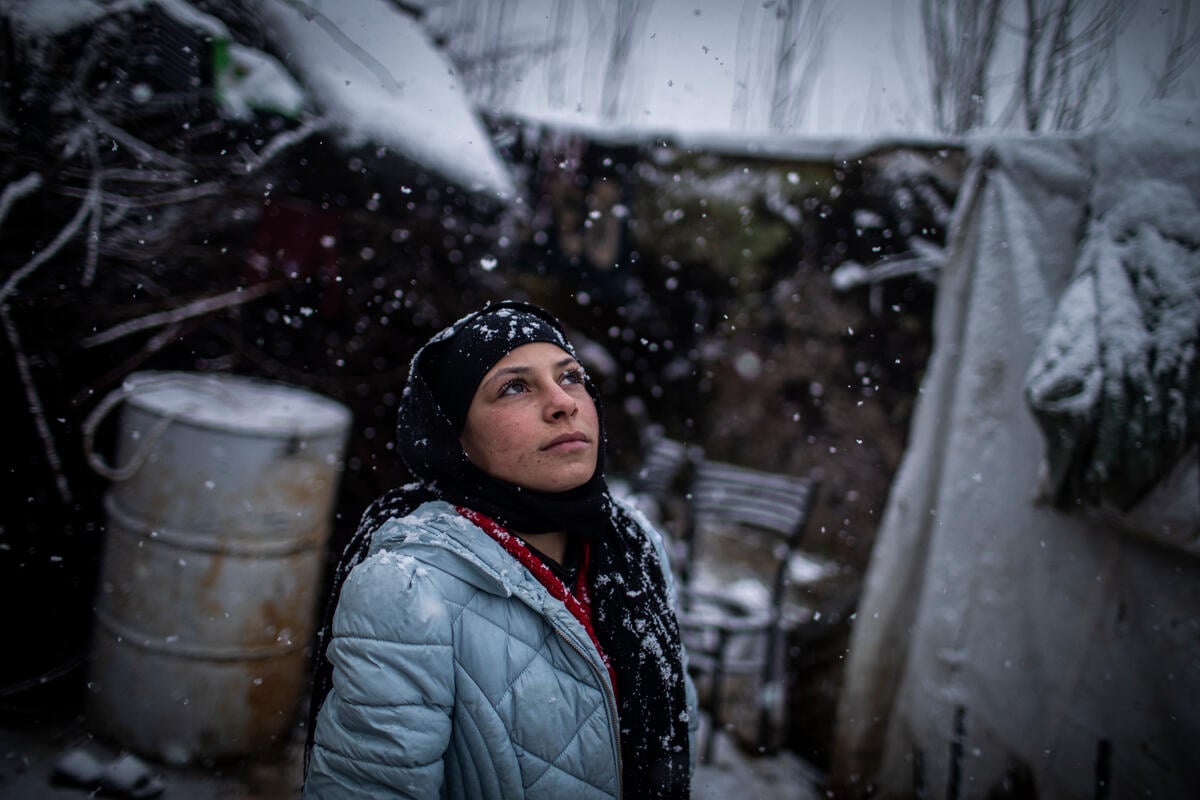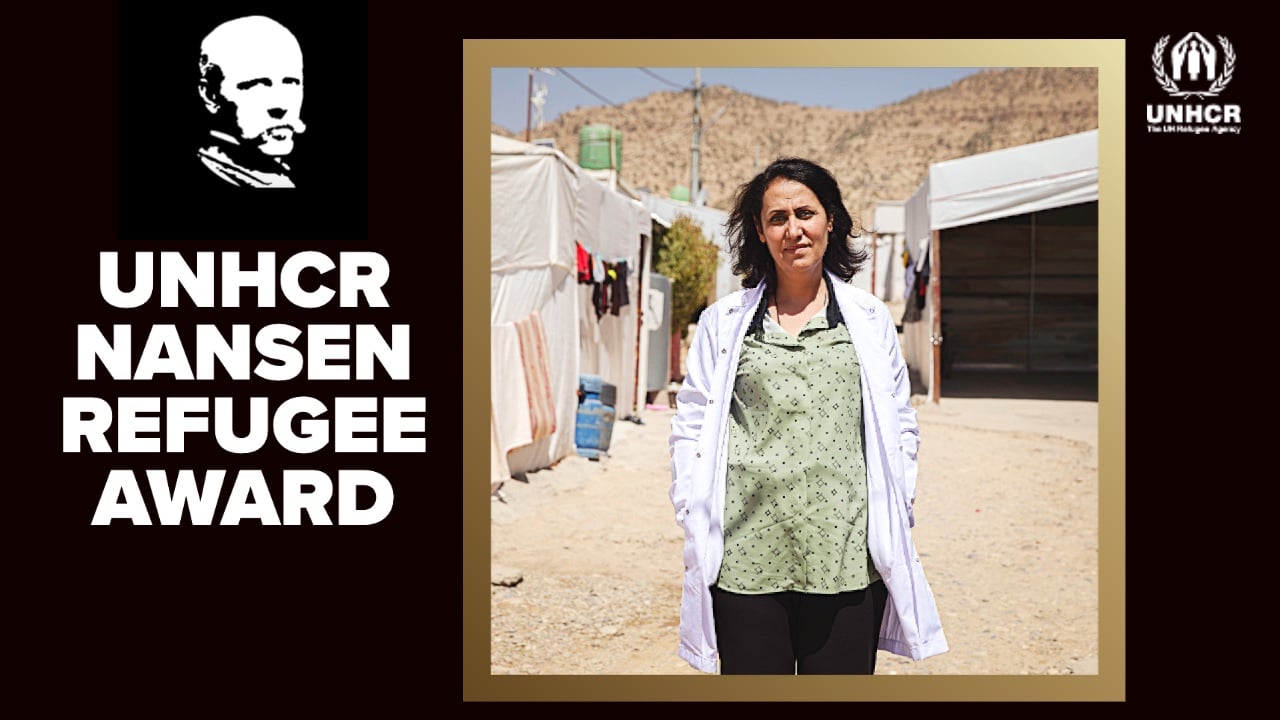Iraqi refugees: Fresh research studies
Iraqi refugees: Fresh research studies
Three research studies have been conducted over the last few months to gain a better understanding of the situation of Iraqi refugees in Syria, Lebanon and Jordan.
In Syria, UNHCR and IPSOS Market Research have just finished a second round of research - a follow up to a survey in May. A total of 754 families, comprising 3,553 people, were surveyed. The results show that Iraqi refugees are running out of financial resources - 33 percent say their financial resources will last for three months or less, while 24 percent are relying on remittances from family abroad to survive. Ten percent of the children of families surveyed are working. Iraqi children continue to fall behind in education with 46 percent of those surveyed reporting their children have dropped out of school. The study also highlighted that 17 percent of those surveyed suffer from chronic illnesses with 19 percent unable to take medication due to financial constraints. The research highlights the well-educated profile of the refugee population with 31 percent having a university degree.
Since the beginning of the year, UNHCR Syria has registered over 19,000 Iraqis with serious medical conditions. One in five Iraqi refugees registered by UNHCR is a victim of violence in Iraq. In 2007, UNHCR Syria registered over 142,000 refugees.
A fuller report will be released in early January after the Center for Disease in the United States provides an analysis of the trauma and depression sections of the survey. Preliminary readings of the results highlight the considerable stress and trauma that many Iraqis are facing. UNHCR included this element in the questionnaire in response to the high proportion of victims of violence and torture in Iraq that it has registered.
This Sunday, UNHCR will start issuing ATM cards to 7,000 of the most needy and vulnerable Iraqi refugee families. Each family will receive between US$100-US$200 per month in financial assistance. The families have been interviewed by community services staff and identified as being in urgent need of financial assistance. They include women at risk, families with working children and refugees with chronic illnesses. The 7,000 families will also receive food assistance from the World Food Programme and UNHCR.
In Lebanon, a similar research study was conducted by the Danish Refugee Council surveying 1,020 Iraqi households comprising 2,033 individuals. The results revealed that 77.7 percent of Iraqis entered Lebanon illegally with 60 percent were 29 years of age or younger. Enrolment in schools for children aged between 6 to 17 years old was only 58 percent. Ten percent of Iraqis surveyed are suffering from chronic illnesses. The majority of Iraqis in Lebanon - 77.7 percent - live in Mount Lebanon while 20 percent live in the South and in the Beqaa. Finally, more than half of the respondents reported never feeling safe in Lebanon. It is estimated there are 50,000 Iraqis in Lebanon.
The situation of Iraqi refugees in Lebanon remains precarious with the majority of Iraqis without a legal status and subject to arrest and detention. As of early December, at least 536 Iraqis are in detention mostly for illegal entry or for overstaying their visas. More than half of them are detained beyond the period of their original sentence. The majority of Iraqis released from detention are returning to Iraq as this has become the only means to be released. Others are choosing to return because of the fear of being arrested by the authorities rather than feeling there is an improvement in the security situation. UNHCR in Lebanon continues to work with the authorities to promote a better protection environment for refugees and asylum seekers.
Our office in Lebanon has been intervening for the release of those in detention, assisting refugees to obtain work or residence permits, and challenging deportation orders in courts. In July, UNHCR opened a second community centre for Iraqis in the southern suburbs of Beirut run by a UNHCR partner, Amel Association. On 6 December, UNHCR opened a new centre for the rehabilitation of victims of torture and violence for refugees and asylum seekers. So far, UNHCR in Lebanon has registered 9,716 Iraqis - 6,198 of them were registered in 2007.
In Jordan in September, at the request of the Government of Jordan, the Norwegian Fafo research foundation finished a study surveying Iraqis in Jordan. It concluded that there are between 450,000 and 500,000 Iraqis living in the country. The study also revealed that the majority of Iraqis live on savings or receive transfers - 42 percent receive transfers from Iraq. This makes a large segment of Iraqis in Jordan at risk of becoming vulnerable with the depletion of their savings. Twenty percent of the families are female-headed and often found among the poorer population. There is also a higher prevalence of chronic diseases among Iraqis. Twenty two percent are employed and 22 percent of the poorest section of the Iraqi community had a valid residence permit. Two thirds of families surveyed have children under 18 years of age. Ninety-five percent of Iraqis surveyed said they wish to return to Iraq only when the security situation improves. UNHCR has registered up till now 51,014 Iraqis in Jordan.








